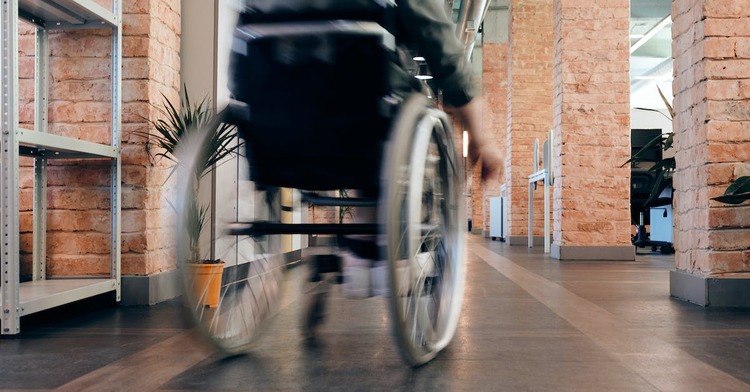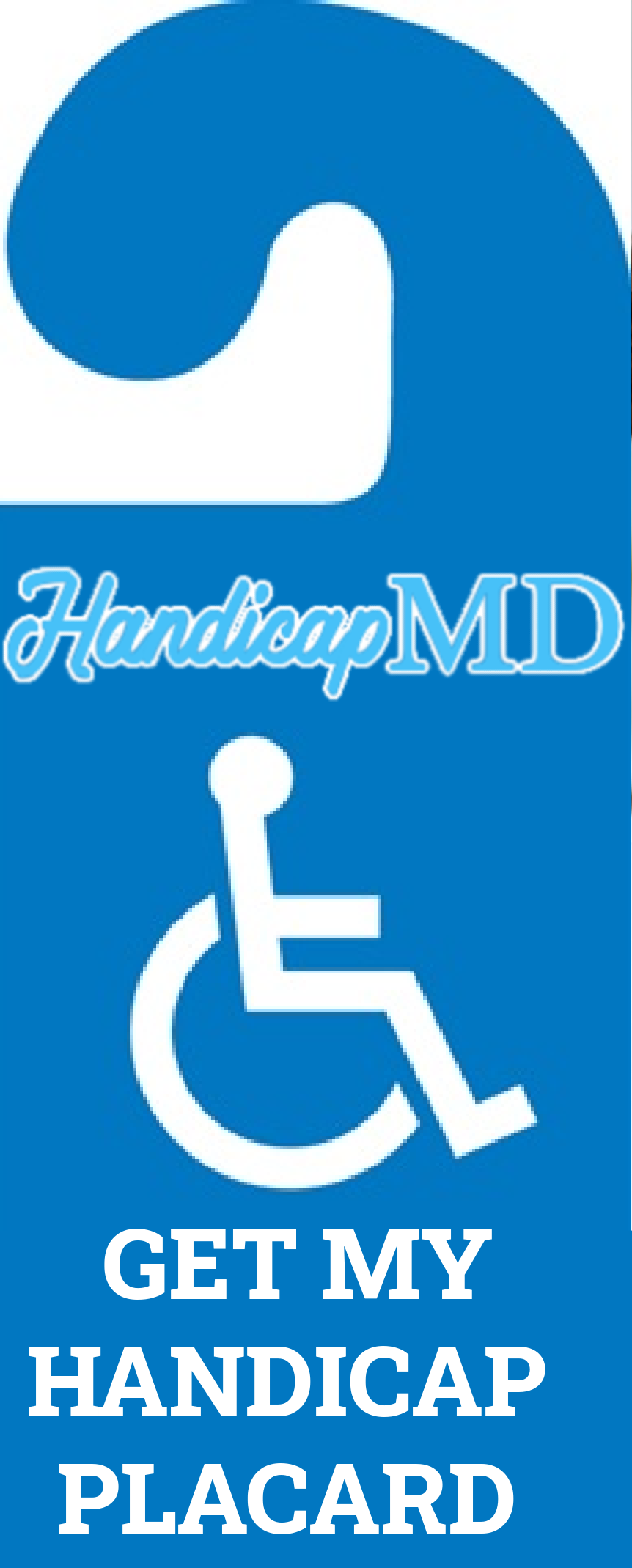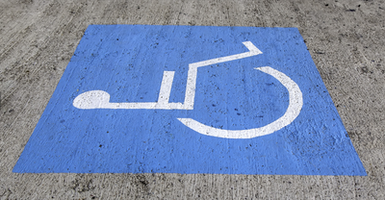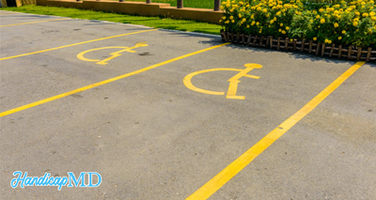
How to Obtain a Disabled Parking Permit in Baltimore
Introduction
Securing a disabled parking permit in Baltimore can significantly improve accessibility and mobility for individuals with disabilities. In this guide, we'll walk you through the process of obtaining your permit online, ensuring a smooth and efficient experience. From eligibility criteria to application procedures, we've got you covered every step of the way.
Eligibility Criteria for Disabled Tags in Baltimore, MD
To qualify for a disability tag in Baltimore, MD, individuals must have a qualifying medical condition that substantially impairs their mobility. Common qualifying conditions include but are not limited to:
- Mobility impairments requiring the use of assistive devices such as wheelchairs or walkers.
- Severe cardiac conditions.
- Respiratory diseases.
- Visual impairments.
Additionally, applicants must be residents of Baltimore or provide proof of regularly conducting business or employment within the city limits.
Applying for a Handicap Placard
Obtaining a handicap permit in Baltimore involves submitting a completed application form along with supporting documentation to the Maryland Department of Transportation's Motor Vehicle Administration (MDOT MVA). Required documents typically include:
- A physician's certification of the applicant's disability.
- Proof of identification and residency.
- Vehicle registration information.
The application process can often be completed online, by mail, or in person at designated MDOT MVA offices. Some jurisdictions may require a nominal fee for processing the application.
Can I get a Baltimore MD handicap permit online?
Yes, you can apply for a Maryland handicap placard, online. The MDOT MVA offers an online application process for obtaining passes. You'll need to visit the official website of MDOT MVA and navigate to the section dedicated to accessible tags. From there, you can follow the instructions to fill out the application form and submit it electronically. Make sure to provide all required documentation, such as a physician's certification of your disability and proof of identification and residency. Once your application is processed and approved, you'll receive your pass by mail. It's a convenient option for those who prefer to apply for tags from the comfort of their homes.
Fees
In Baltimore, MD, there are typically no fees for obtaining a tag. The MDOT MVA issues these special tags free of charge to eligible individuals with qualifying disabilities. This includes both permanent and temporary passes. However, it's important to note that while the pass itself is usually provided at no cost, there may be associated fees for other services or transactions related to vehicle registration or renewal. Applicants should check with the MDOT MVA or refer to their official website for the most current information regarding fees and requirements for obtaining one.
Validity/Expiration of Permits
The validity period for disability tags can vary depending on the type of tag issued and the individual's circumstances.
Permanent passes often have expiration dates ranging from one to five years. Renewal processes usually involve submitting updated documentation to the MDOT MVA to confirm the continued need for the pass.
Temporary passes are issued for specific durations corresponding to the expected duration of the disability. These tags automatically expire at the end of the designated period and may require reapplication if the disability persists beyond the initial timeframe.
Renewal Process
Accessible tags typically have expiration dates and require renewal to remain valid. Renewal processes may vary, but generally involve submitting updated documentation confirming the continued need for the tag.
Lost, Stolen, or Damaged Tags
In the event of a lost, stolen, or damaged tag, individuals should promptly report the incident to the MDOT MVA and request a replacement. Replacement procedures may differ depending on the circumstances but usually involve providing relevant details and documentation.
Where to hang the placard?
When using an accessible sign in Baltimore, MD, it should be prominently displayed inside the vehicle while parked in designated accessible spaces. The sign should be hung from the rearview mirror, facing forward, with the expiration date and permit number visible from the front windshield. This ensures easy visibility and identification for law enforcement officials and parking enforcement personnel.
It's important to hang the pass properly to avoid obstructing the driver's view or interfering with the vehicle's operation. Additionally, make sure the pass is securely attached to prevent it from falling while driving or becoming lost.
When the vehicle is not parked in a designated accessible space, the tag should be removed from the rearview mirror and stored in a safe place within the vehicle, such as the glove compartment, to prevent theft or misuse. Always remember to return the tag to its proper location when occupying accessible spaces to ensure compliance with regulations and to avoid potential fines or penalties.
What is Disabled Parking?
Disabled parking refers to designated spaces that are reserved for individuals with disabilities. These accessible spaces are strategically located close to building entrances, facilities, or amenities to facilitate easier access for people with mobility issues or other disabilities. Accessible spaces are typically marked with special signage and are wider than regular parking spaces to accommodate wheelchair ramps and other mobility aids. Access to these parking spaces is restricted to vehicles displaying valid passes or license plates, ensuring that only individuals with disabilities can utilize them. Accessible parking plays a crucial role in promoting accessibility and inclusivity, allowing people with disabilities to participate fully in various activities and access essential services without encountering unnecessary barriers.
Where Can You Park with a Disability Permit in Baltimore
In Baltimore, MD, having a tag allows individuals with disabilities to park in designated accessible spaces. These spaces are typically located close to building entrances or facilities to provide convenient access for individuals with mobility challenges.
With a special tag, you can park in these designated accessible spaces in various locations throughout Baltimore, including:
- Public parking lots
- On-street spaces
- Parking garages
- Government buildings
- Healthcare facilities
- Shopping centers
- Restaurants and other establishments
It's essential to adhere to regulations and signage when using a disability pass to ensure compliance with local laws and to avoid fines or penalties. Additionally, always display your tag prominently while parked in accessible spaces to indicate your eligibility and prevent any misunderstandings or issues with enforcement officials.
What are the rules for handicap parking in Baltimore MD?
In Baltimore, this is regulated by specific rules and regulations to ensure equitable access for individuals with disabilities. Some of the key rules in Baltimore include:
Eligibility: Only individuals with qualifying disabilities are eligible for these special privileges. These disabilities must substantially impair mobility, as certified by a licensed healthcare professional.
Parking Spaces: Designated spaces are reserved exclusively for vehicles displaying a valid tag or license plate. These spaces are typically marked with the international symbol of accessibility and are located close to building entrances or facilities.
Permit Display: Accessible tags, whether passes or license plates, must be visibly displayed while the vehicle is parked in a handicap space. Tags should be hung from the rearview mirror, with the expiration date and permit number visible from the front windshield.
Time Limits: Some accessible spaces may have time limits for parking, indicated by signage. It's important to adhere to these time limits to avoid fines or penalties.
Penalties for Misuse: Misuse or unauthorized use of designated spaces or passes is subject to strict enforcement measures and penalties. Law enforcement agencies actively monitor these spaces to ensure compliance and may issue fines or citations for violations.
Enforcement: Local enforcement officers and law enforcement officials patrol these accessible spaces to enforce regulations and ensure compliance with the state laws. They have the authority to issue citations or tow vehicles found in violation of the the rules.
Accessible Routes: In addition to providing accessible spaces, buildings and facilities are required to have accessible routes from parking areas to entrances, including curb ramps and designated pathways.
It's essential for both authorized holders and the general public to understand and respect rules to ensure equal access for individuals with disabilities and promote inclusivity within the community.
How do you use your placard appropriately?
Using your handicap placard appropriately involves several key steps to ensure compliance with regulations and respect for individuals with disabilities:
Hang the Placard Properly: When occupying a designated space, hang your tag from the rearview mirror inside your vehicle. Make sure it is visible from the front windshield, with the expiration date and permit number facing outward.
Park Only in Designated Spaces: Passes are only valid for use in designated spaces. Park only in spaces marked with the international symbol of accessibility and reserved for individuals with disabilities.
Display the Placard Clearly: Ensure that your tag is clearly displayed whenever you occupy designated spaces. This helps local enforcement officers and others identify that you have the right to park in that location.
Observe Time Limits: Some accessible spaces may have time limits for parking. Be mindful of any posted signs indicating time restrictions and adhere to them accordingly.
Remove the Placard When Not in Use: When you're not occupying accessible space, remove the placard from the rearview mirror and store it in a safe place within your vehicle, such as the glove compartment. This prevents misuse or theft of the placard.
Avoid Misuse: Passes are issued for the use of the individual to whom they are registered. Do not lend it to others or use someone else's placard, as this constitutes misuse and is subject to penalties.
Renew Your Placard Promptly: Ensure that your tag is renewed before its expiration date. Contact the appropriate authority well in advance to initiate the renewal process if necessary.
By following these guidelines, you can use your tag appropriately and help ensure that designated spaces reserved for individuals with disabilities are available to those who truly need them.
Penalties for Misusing Accessible Spaces in Baltimore MD
In Baltimore, MD, misusing accessible spaces or passes is taken seriously, and there are penalties in place to deter such behavior. Penalties for misusing these spaces typically include fines and potential legal consequences. Here are the penalties for misusing designated spaces in Baltimore:
Fines: Individuals found misusing accessible spaces may be subject to fines imposed by local authorities. The amount of the fine can vary depending on the specific violation and the jurisdiction within Baltimore.
Towing: In addition to fines, vehicles parked in designated spaces without a valid pass may be subject to towing at the owner's expense. Towing serves as a deterrent and helps free up accessible spaces for those who genuinely need them.
Legal Consequences: Repeat offenders or those who engage in severe misuse of these spaces may face legal consequences beyond fines and towing. This can include criminal charges, court appearances, and potential civil penalties.
Loss of Privileges: Individuals who repeatedly misuse these spaces may have their tags revoked or suspended. This loss of these special privileges can significantly impact their ability to access convenient parking and may require them to find alternative arrangements.
Community Service: In some cases, individuals caught misusing the deisgnated spaces may be required to perform community service as part of their penalty. Community service serves as a way to educate offenders about the importance of disabled accessibility and promote awareness within the community.
Can I Use My Baltimore Handicap Placard in Other States?
Yes, in most cases, you can use your Baltimore tag in other states. Disability laws and regulations vary from state to state, but there is often reciprocity between jurisdictions. This means that many states recognize tags issued by other states and allow holders to use them to access accessible spaces.
However, it's crucial to familiarize yourself with the specific laws and regulations of the state you're visiting regarding disabled parking. While most states honor out-of-state passes, there may be exceptions or additional requirements in certain locations.
It's recommended to research the the laws of the state you plan to visit or contact the relevant authorities for clarification if you have any concerns about using your Baltimore accessible tag out of state. Additionally, always ensure that it is displayed properly and adhere to local regulations to avoid any potential issues or penalties while traveling.
.png)






